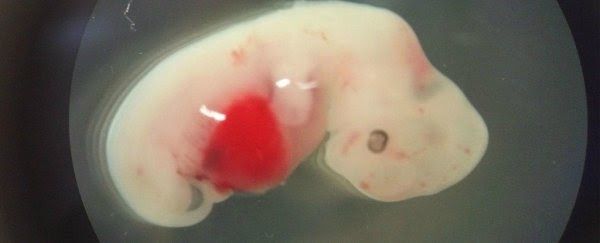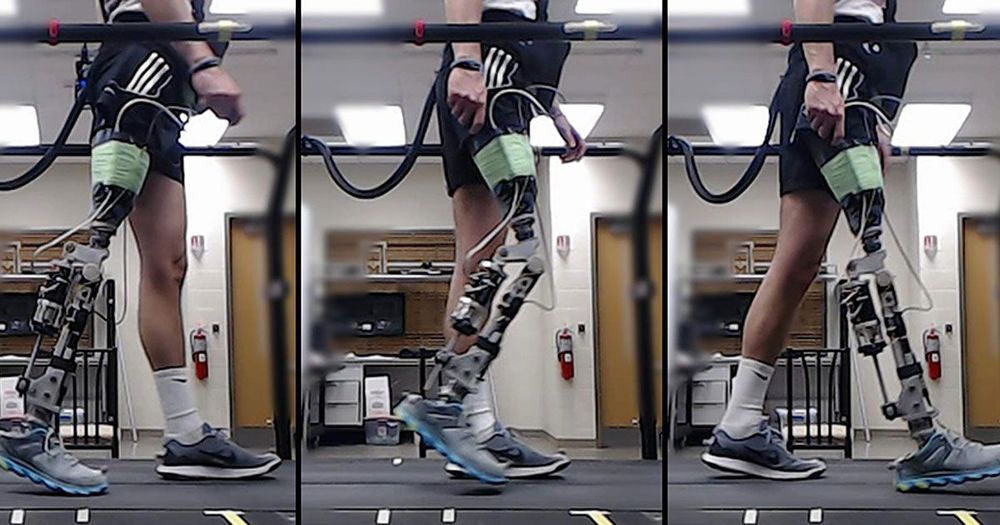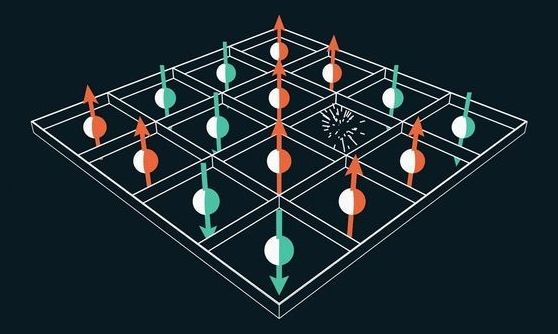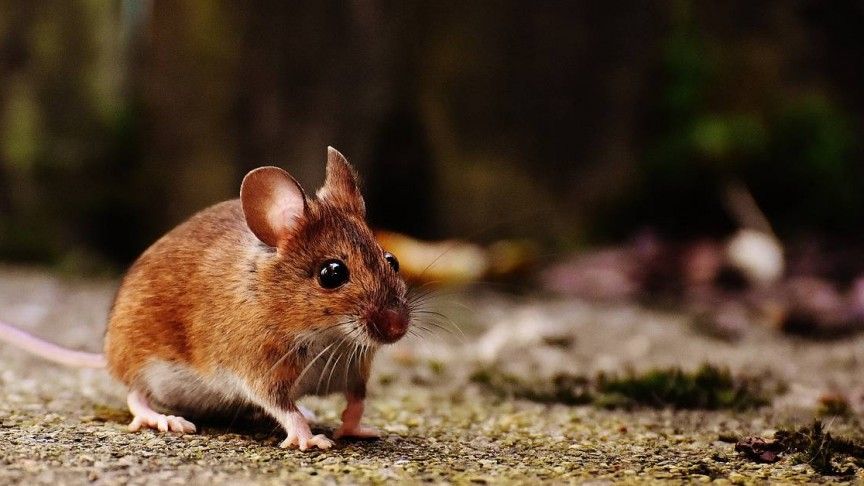Page 9480
Jan 27, 2019
AI Helps Amputees Walk With a Robotic Knee
Posted by James Christian Smith in categories: biotech/medical, cyborgs, information science, robotics/AI
A movie montage for modern artificial intelligence might show a computer playing millions of games of chess or Go against itself to learn how to win. Now, researchers are exploring how the reinforcement learning technique that helped DeepMind’s AlphaZero conquer chess and Go could tackle an even more complex task—training a robotic knee to help amputees walk smoothly.
Computer algorithms help prosthetics wearers walk within minutes rather than requiring hours of training.
Jan 27, 2019
AI technology accelerates and augments legal work
Posted by James Christian Smith in categories: law, robotics/AI
Law firms are under tremendous pressure to innovate to provide better value to their clients, who demand more value for their legal dollars. Providing higher-value services in turn boosts firms’ competitiveness.
However, much of the day-to-day work of any legal office – whether it’s in-house counsel, a boutique firm or one of the largest legal power houses – is the tedious, repetitive work of reading and preparing answers to complaints. Larger firms may have armies of junior associates do much of this necessary but mundane case-preparation work. At smaller firms, partners and senior associates are often involved in all stages of litigation. Preparing responses is time-consuming. It can take several hours to a full day to complete. Those are hours that both attorneys and firms would prefer to use tackling more strategic legal work.
We asked ourselves, what if, instead of taking hours, those high-volume, repetitive tasks could take a couple of minutes?
Continue reading “AI technology accelerates and augments legal work” »
Jan 27, 2019
These billion-dollar cities are straight out of science fiction, and they will soon become a reality
Posted by Genevieve Klien in category: futurism
Jan 27, 2019
A Child’s Puzzle Helped Uncover How Magnets Really Work
Posted by Genevieve Klien in category: physics
The physics of ferromagnetism has long befuddled scientists, but a familiar puzzle is getting them closer to an answer.
Jan 27, 2019
Washington has declared a public health emergency over measles
Posted by Genevieve Klien in category: health
Jan 27, 2019
Microsoft, MIT help self-driving cars learn from AI ‘blind spots’
Posted by Genevieve Klien in categories: robotics/AI, transportation
A collaboration of researchers from MIT and Microsoft have developed a system that helps identify lapses in artificial intelligence knowledge in autonomous cars and robots. These lapses, referred to as “blind spots,” occur when there are significant differences between training examples and what a human would do in a certain situation — such as a driverless car not detecting the difference between a large white car and an ambulance with its sirens on, and thus not behaving appropriately.
Jan 27, 2019
World’s First Mammal CRISPR/Cas-9 Genetic Inheritance Control Achieved
Posted by Genevieve Klien in categories: biotech/medical, genetics
CRISPR/Cas9 is a form of genetic editing that holds a lot of promise, such as the killing of cancer cells, but also comes with some hefty warnings, such as that it may cause DNA damage. So far, scientists have been using CRISPR/Cas9 in a variety of plants and animals to edit genetic information, including attempts to practice what is called ‘active genetics’.
This last approach is an attempt to edit the genome that controls which of the two copies of a gene is passed to the next generation. But the technique is complicated and rife with obstacles so thus far been used only on insects. Not anymore!
A team of biologists has now achieved the world’s first CRISPR/Cas9-based approach to control genetic inheritance in a mammal.
Continue reading “World’s First Mammal CRISPR/Cas-9 Genetic Inheritance Control Achieved” »
Jan 27, 2019
How Life Creates Time, Space, and the Cosmos Itself
Posted by Victoria Generao in category: alien life
The farther we peer into space, the more we realize that the nature of the universe cannot be understood fully by inspecting spiral galaxies or watching distant supernovas. It lies deeper. It involves our very selves.
The farther we peer into space, the more we realize that the nature of the universe cannot be understood fully by inspecting spiral galaxies or watching distant supernovas. It lies deeper. It involves our very selves.
This insight snapped into focus one day while one of us (Lanza) was walking through the woods. Looking up, he saw a huge golden orb web spider tethered to the overhead boughs. There the creature sat on a single thread, reaching out across its web to detect the vibrations of a trapped insect struggling to escape. The spider surveyed its universe, but everything beyond that gossamer pinwheel was incomprehensible. The human observer seemed as far-off to the spider as telescopic objects seem to us. Yet there was something kindred: We humans, too, lie at the heart of a great web of space and time whose threads are connected according to laws that dwell in our minds.
Continue reading “How Life Creates Time, Space, and the Cosmos Itself” »
Jan 27, 2019
Scientists Created The First Successful Human-Animal Hybrids
Posted by Paul Battista in categories: bioengineering, biotech/medical

Researchers have achieved a new kind of chimeric first, producing sheep-human hybrid embryos that could one day represent the future of organ donation – by using body parts grown inside unnatural, engineered animals. Scientists have created the first interspecies sheep-human chimera, introducing human stem cells into sheep embryos, resulting in a hybrid creature that’s more than 99 percent sheep – but also a tiny, little bit like you and me.
Admittedly, the human portion of the embryos created in the experiment – before they were destroyed after 28 days – is exceedingly small, but the fact it exists at all is what generates considerable controversy in this field of research.
Continue reading “Scientists Created The First Successful Human-Animal Hybrids” »
















